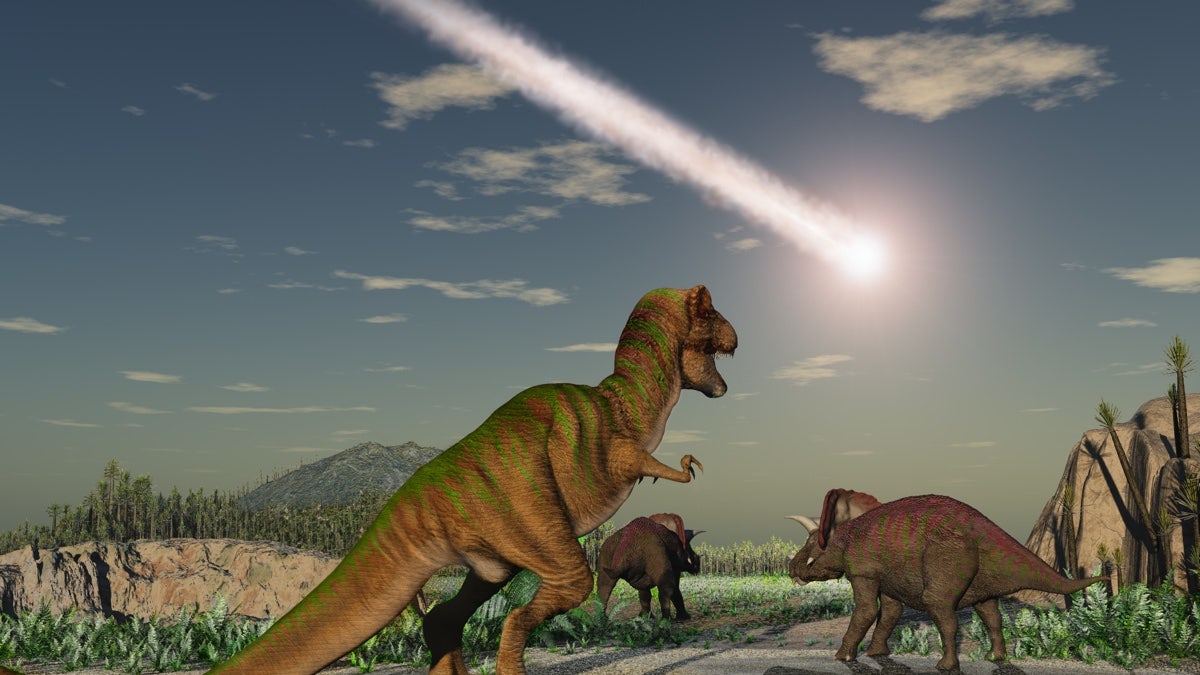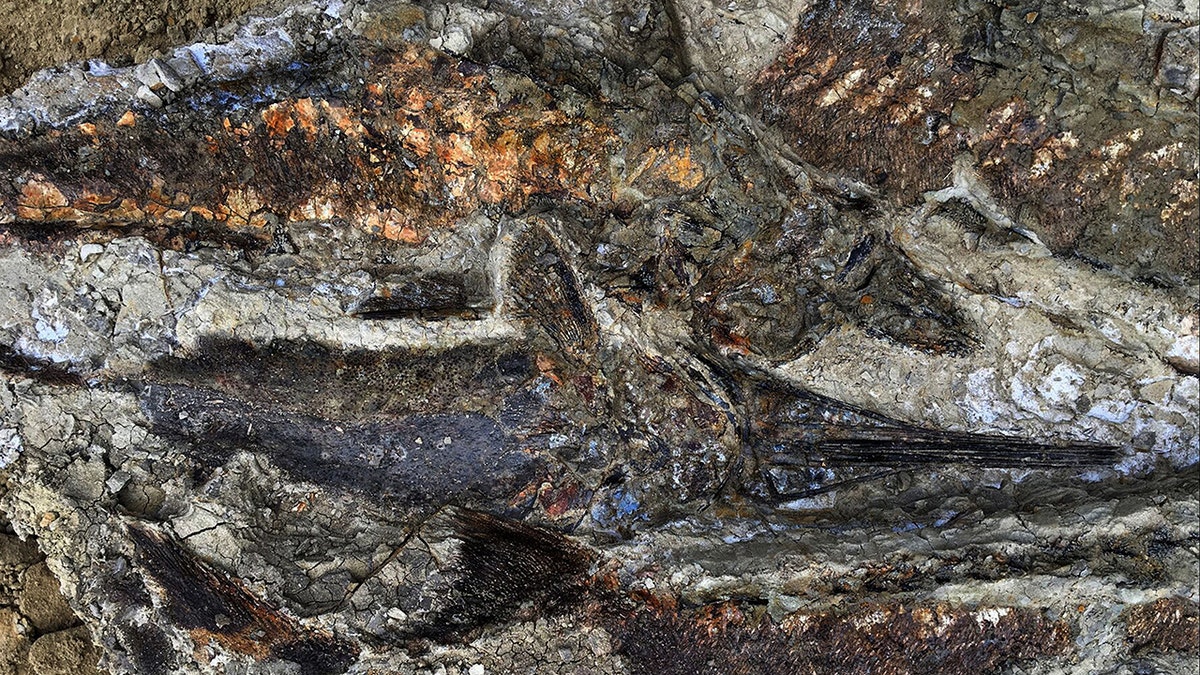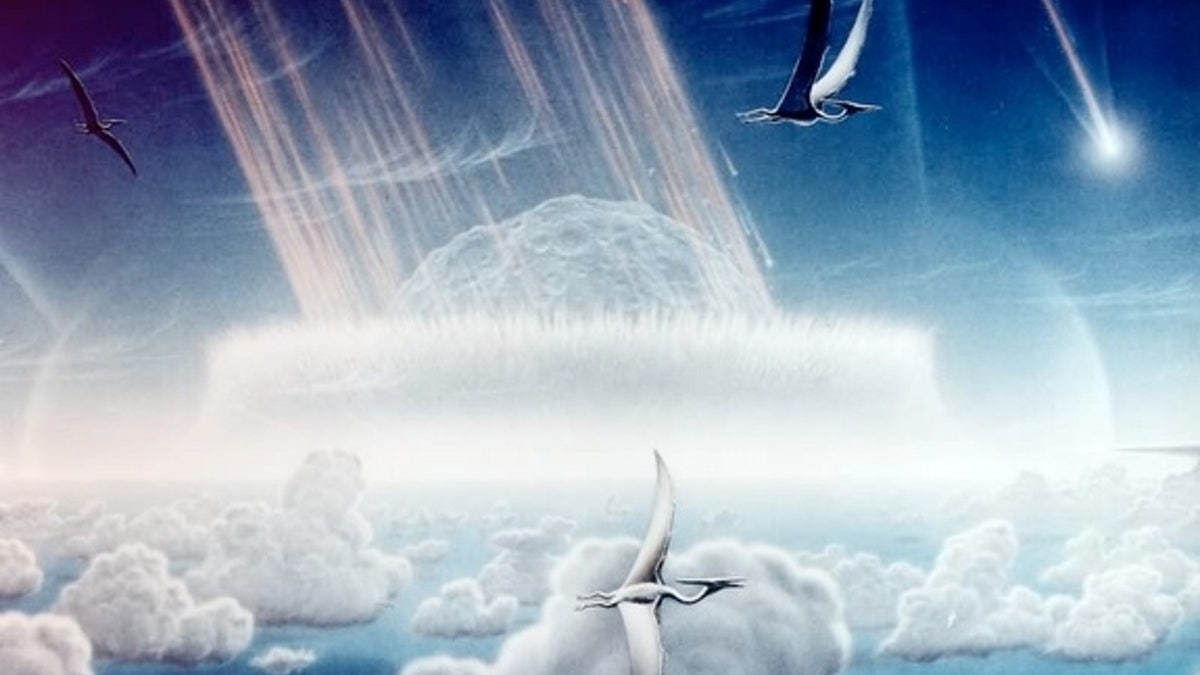Fox News Flash top headlines for Jan. 17
Fox News Flash top headlines for Jan. 17 are here. Check out what's clicking on Foxnews.com
Several studies have suggested a volcano eruption played a greater role in the extinction of the dinosaurs than the asteroid that crashed into modern-day Mexico. A new study is hoping to end the debate, suggesting "it was all about the asteroid."
The research, published in Science, notes that there were no geological or temperature records to support the idea that the gases released from a volcanic eruption played a role in the demise of the dinosaurs.
"Volcanic activity in the late Cretaceous caused a gradual global warming event of about two degrees, but not mass extinction," said one of the study's co-authors and former Yale researcher Michael Henehan, in a statement. "A number of species moved toward the North and South poles but moved back well before the asteroid impact."

What if the space rock that wiped out the dinosaurs hit another spot on Earth? (Esteban De Armas/Shutterstock)
MINUTE BY MINUTE ACCOUNTS OF HOW ASTEROID THAT WIPED OUT THE DINOSAURS DEVASTATED EARTH
In December, a separate study was published by researchers that suggested dinosaurs were already struggling to survive prior to the asteroid due to a sharp increase in mercury levels caused by a massive volcano eruption of the Deccan Traps. These eruptions, which occurred 66 million years ago, are believed to have formed much of western India.
Pincelli Hull, a professor at Yale University and the study's lead author, looked at global temperature records, carbon isotopes from marine fossils and various computer simulations and found that the toxic gases that emanated from the volcanic eruption happened prior to the asteroid hitting the planet.
"Volcanoes can drive mass extinctions because they release lots of gases, like [sulfur dioxide] and [carbon dioxide], that can alter the climate and acidify the world," said Hull in the statement. "But recent work has focused on the timing of lava eruption rather than gas release."
"A lot of people have speculated that volcanoes mattered to K-Pg, and we're saying, 'No, they didn't,'" Hull added.

This handout photo obtained March 30, 2019 courtesy the University of Kansas shows a partially exposed, perfectly preserved 66-million-year-old fish fossil uncovered by Robert DePalma and his colleagues. The asteroid's impact in what is now Mexico was the most cataclysmic event ever known to befall Earth, eradicating 75 percent of the planet's animal and plant species, extinguishing the dinosaurs and paving the way for the rise of humans. (Photo by Robert DePalma / Kansas University / AFP)
Ultimately, the extinction event, known as K-Pg, resulted in a significant loss of life on the planet and "profoundly altered the global carbon cycle," Donald Penman, one of the study's co-authors, added.
"Our results show that these changes would allow the ocean to absorb an enormous amount of [carbon dioxide] on long time scales; perhaps hiding the warming effects of volcanism in the aftermath of the event," Penman said.
SCIENTISTS UNCOVER NEW EVIDENCE OF THE ASTEROID THAT KILLED OFF THE DINOSAURS
Researchers continue to learn more about the time period surrounding the dinosaur extinction, including about the asteroid itself.
The asteroid, which hit Earth in the Yucatan Peninsula in Mexico and is now known as the Chicxulub crater, wiped out nearly 75 percent of all species on the planet. It may have also acidified Earth's oceans after its impact, according to a study published in October 2019.

A giant space rock that slammed into Earth 65.5 million years ago is blamed for killing off the dinosaurs. (Painting by Donald E. Davis.)
A separate study, published in January 2019, put forth a theory that the impact from the space rock also caused a worldwide tsunami that reached more than 5,000 feet in the air. Another study published in September 2019 compared the impact of the asteroid to the power of 10 billion atomic bombs.
Fox News' James Rogers contributed to this story.









































